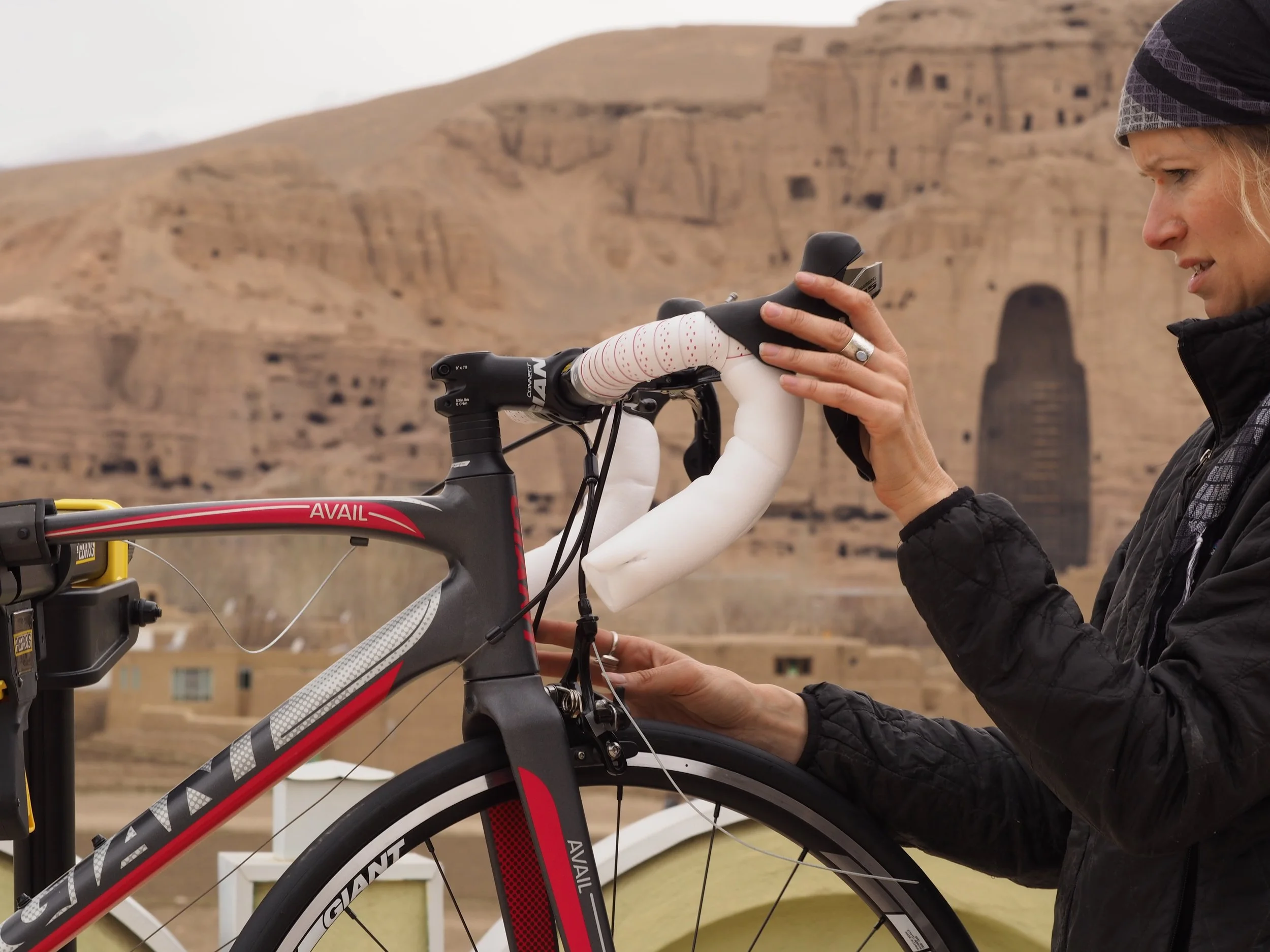
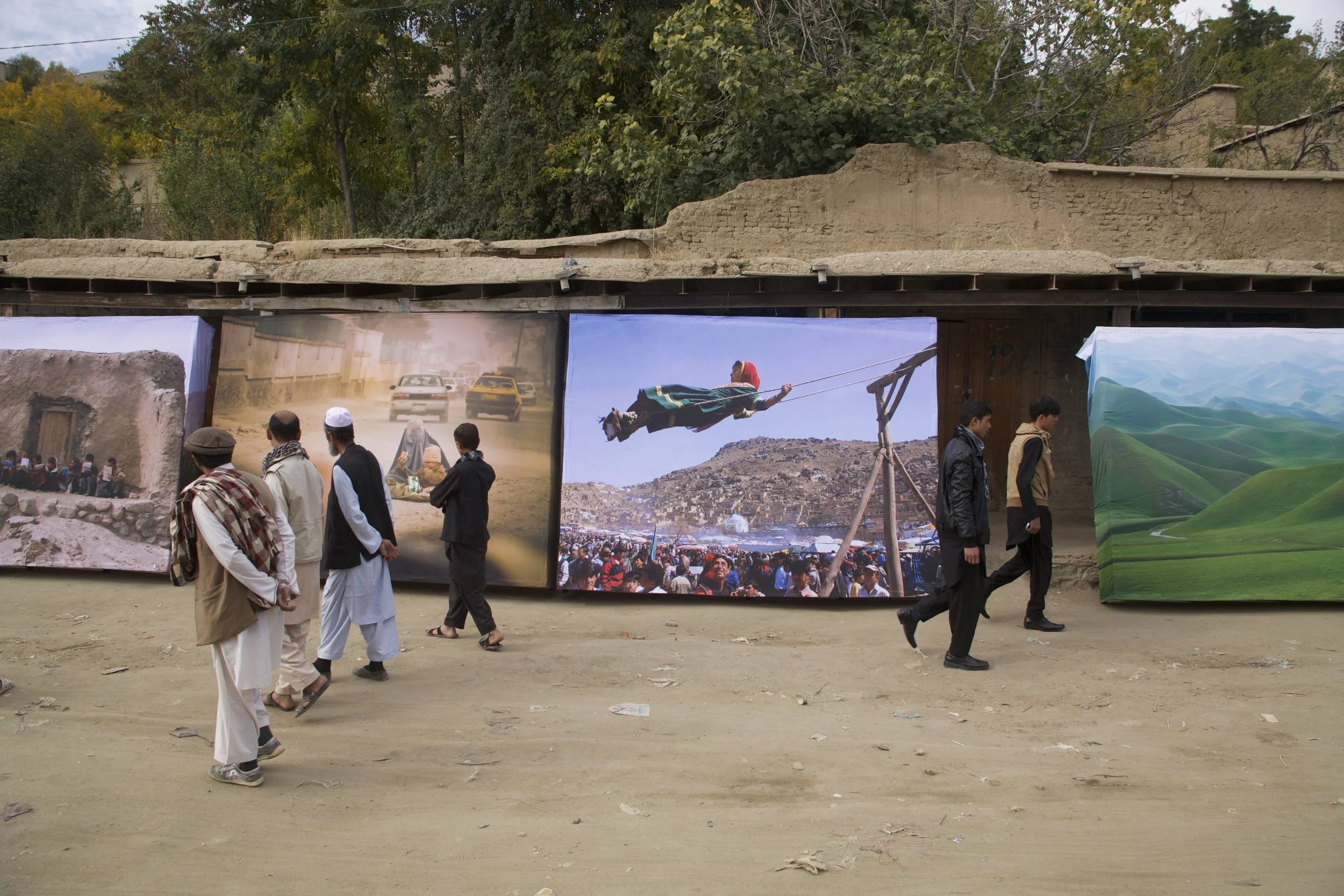
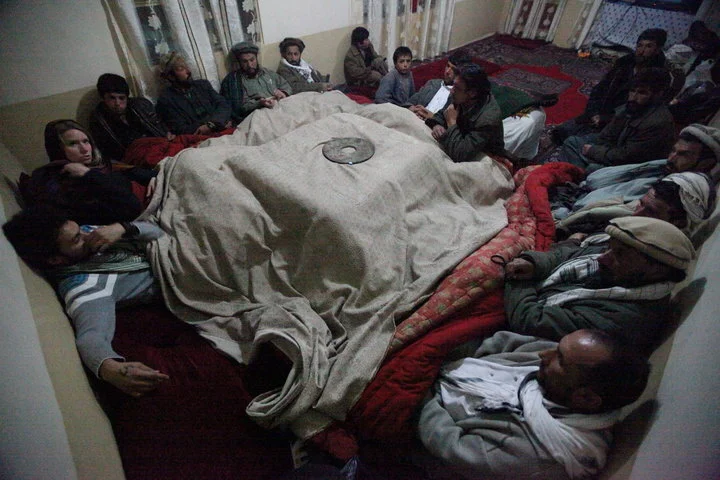
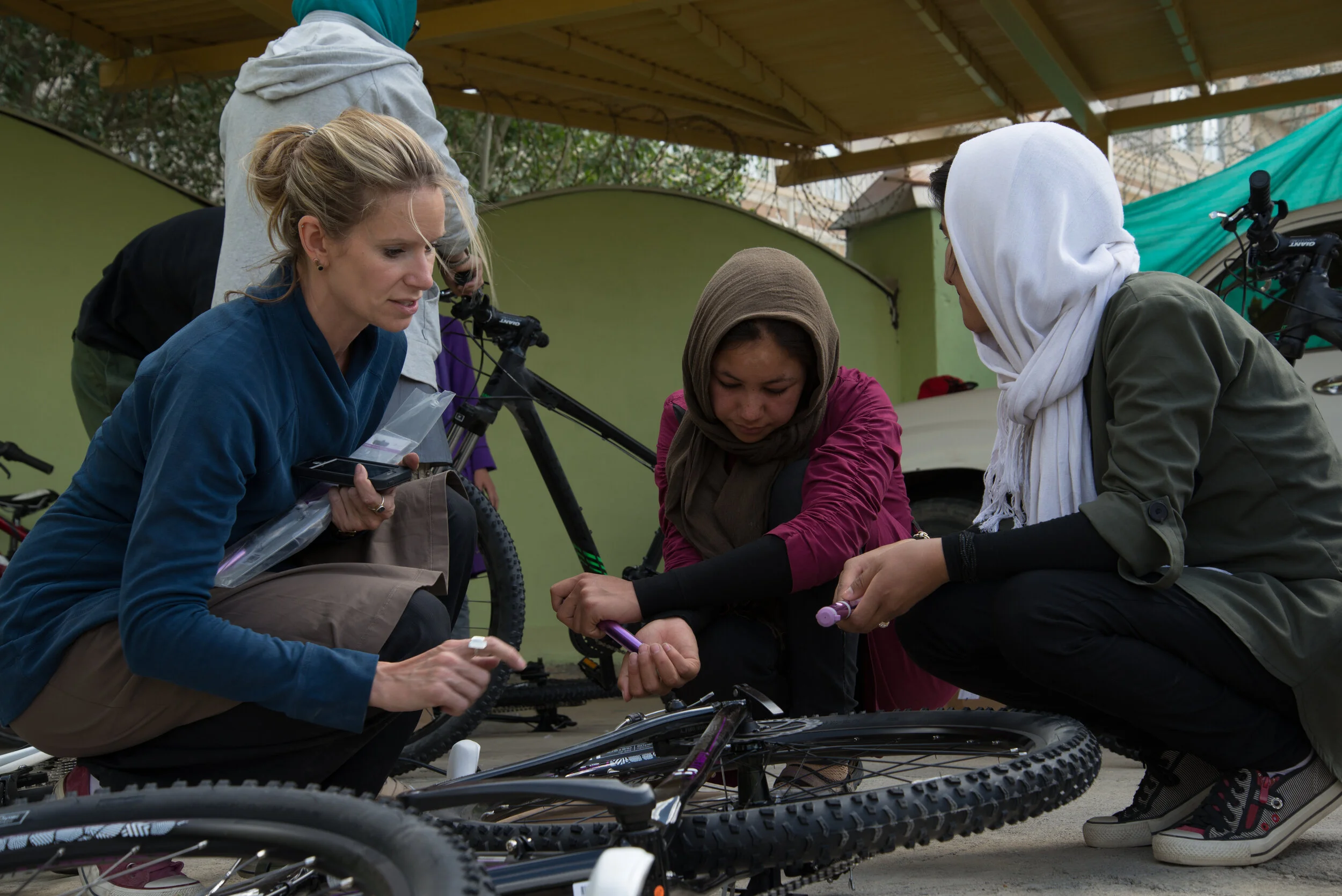
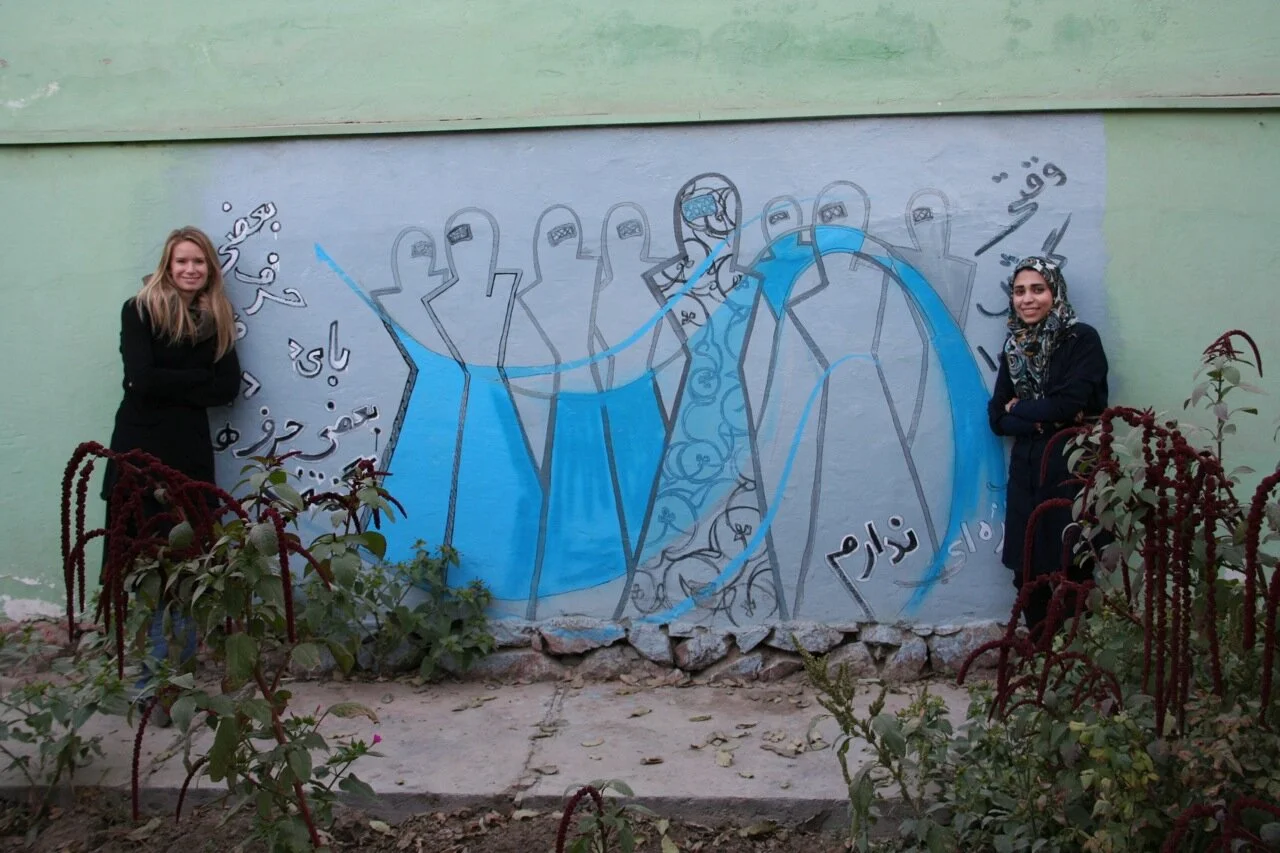

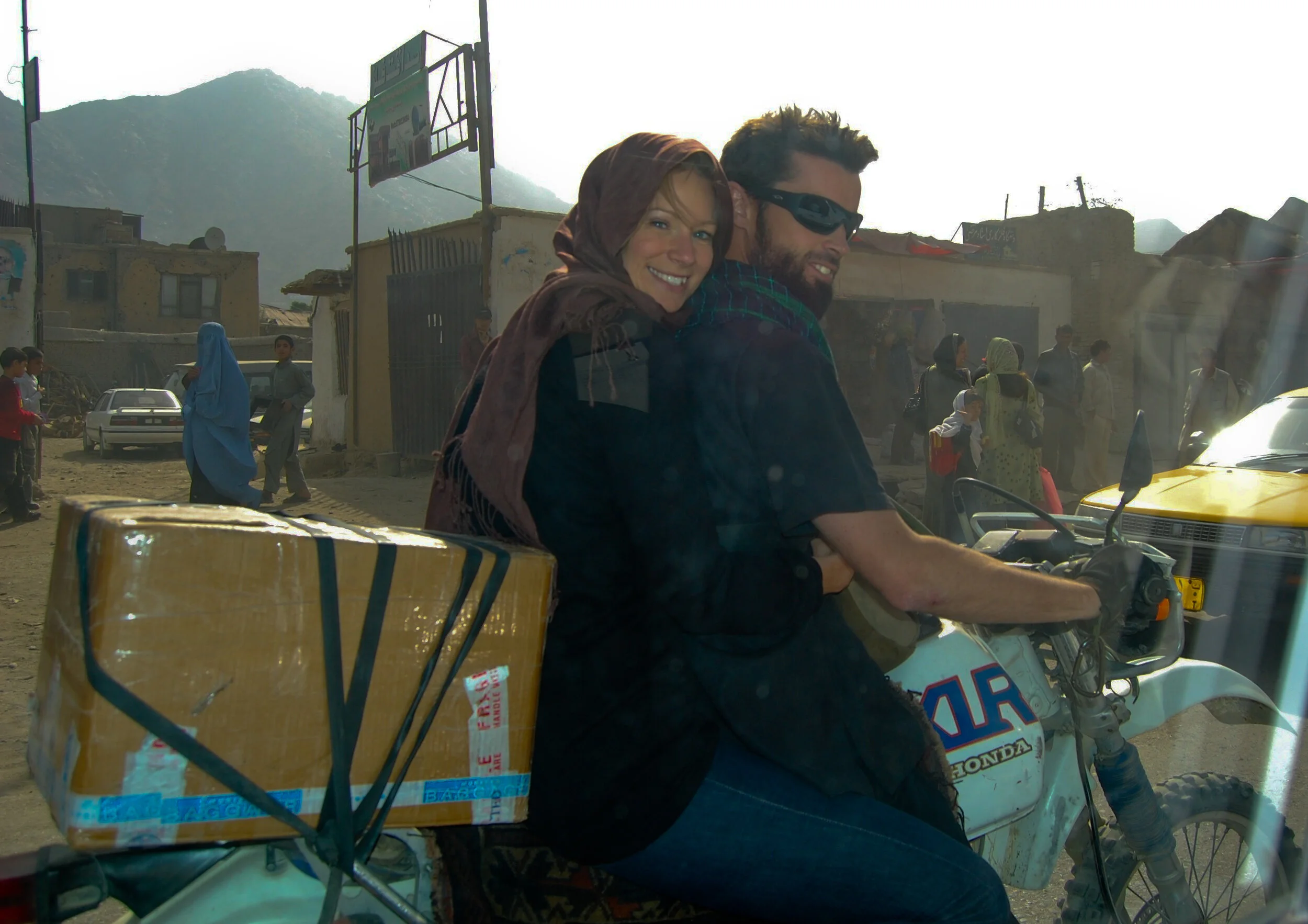
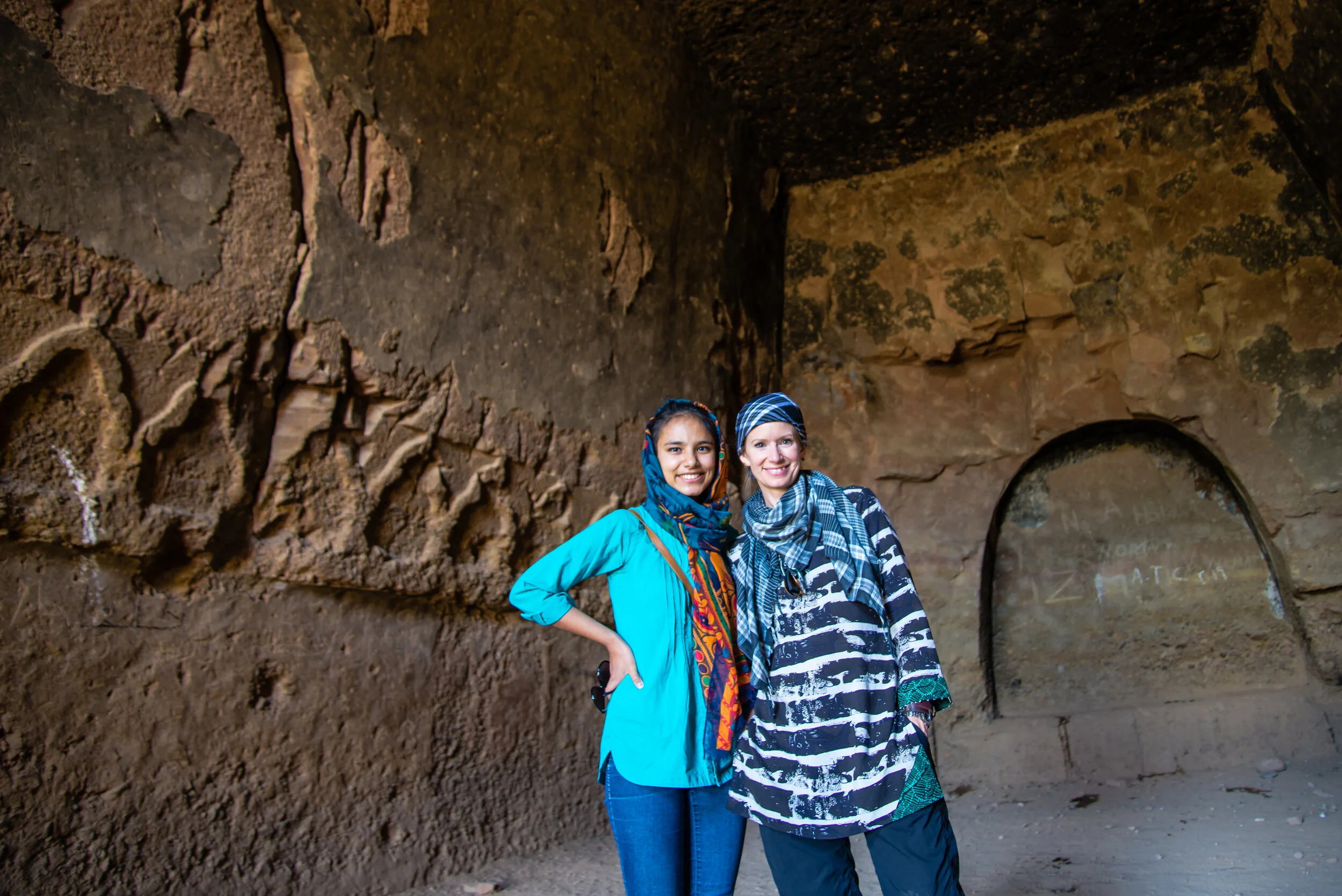
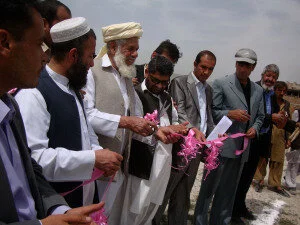

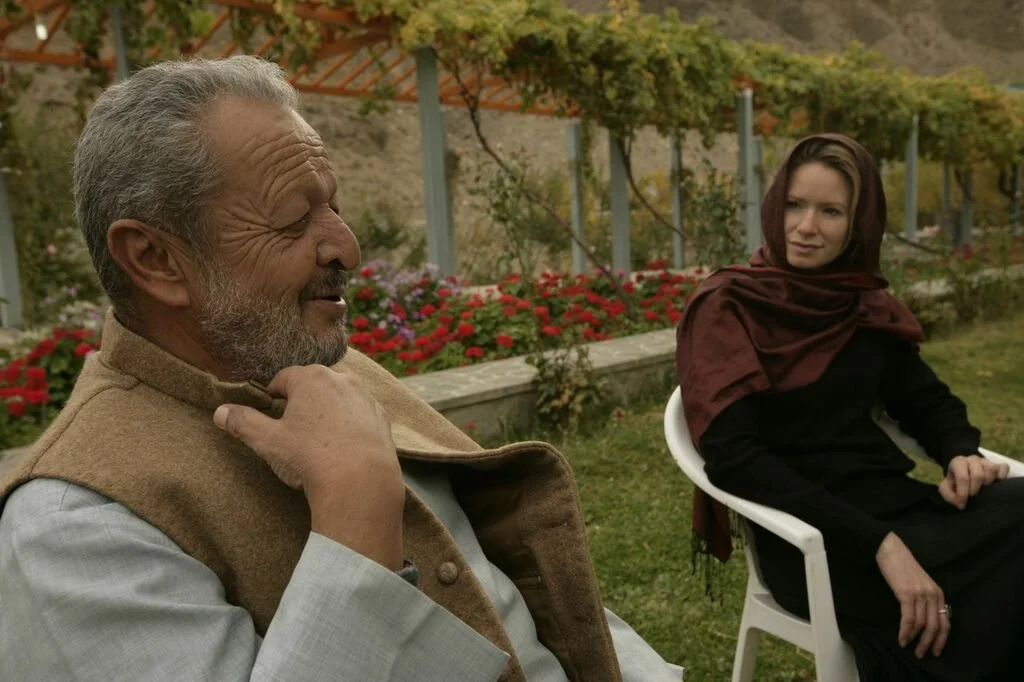
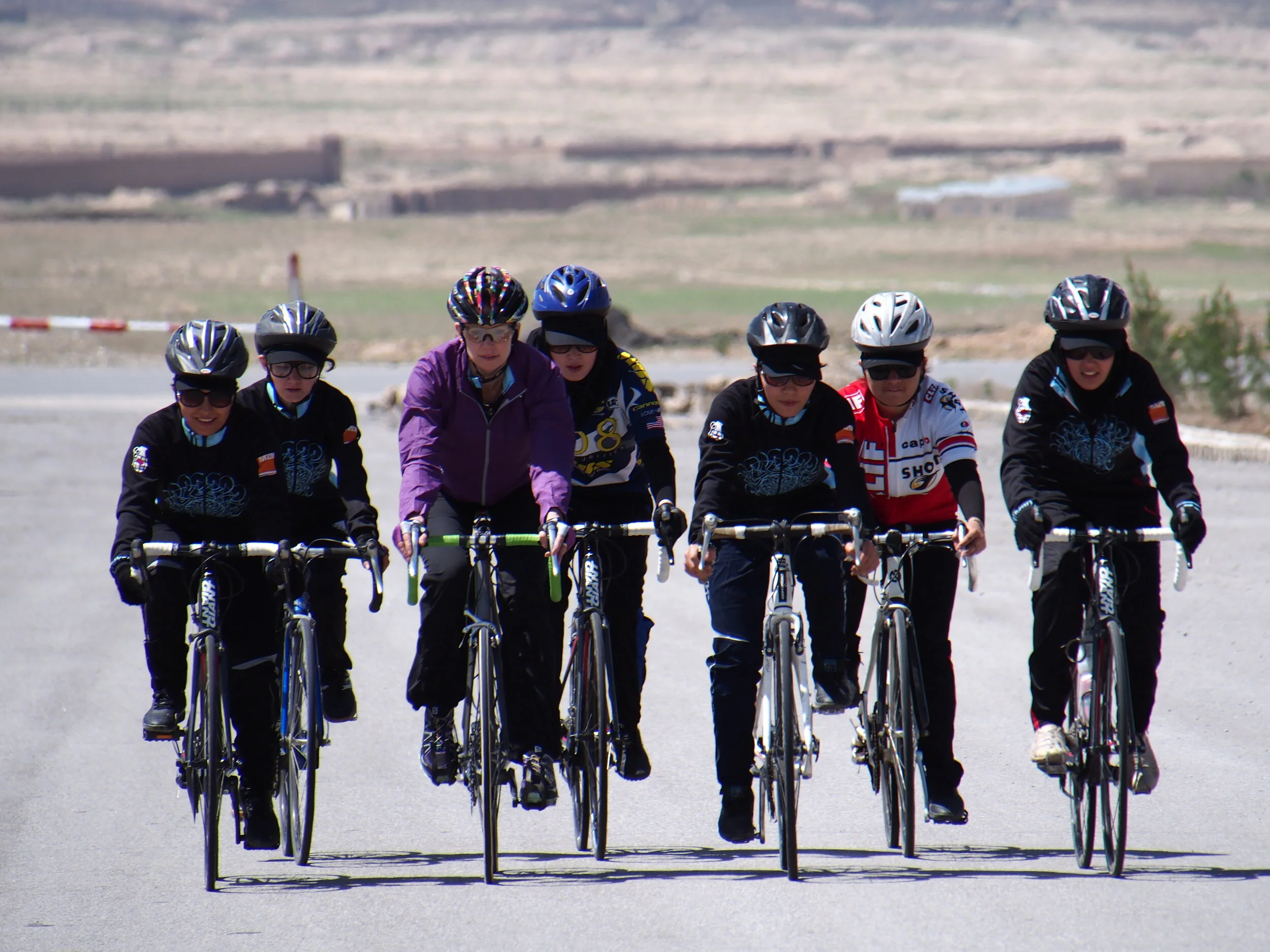
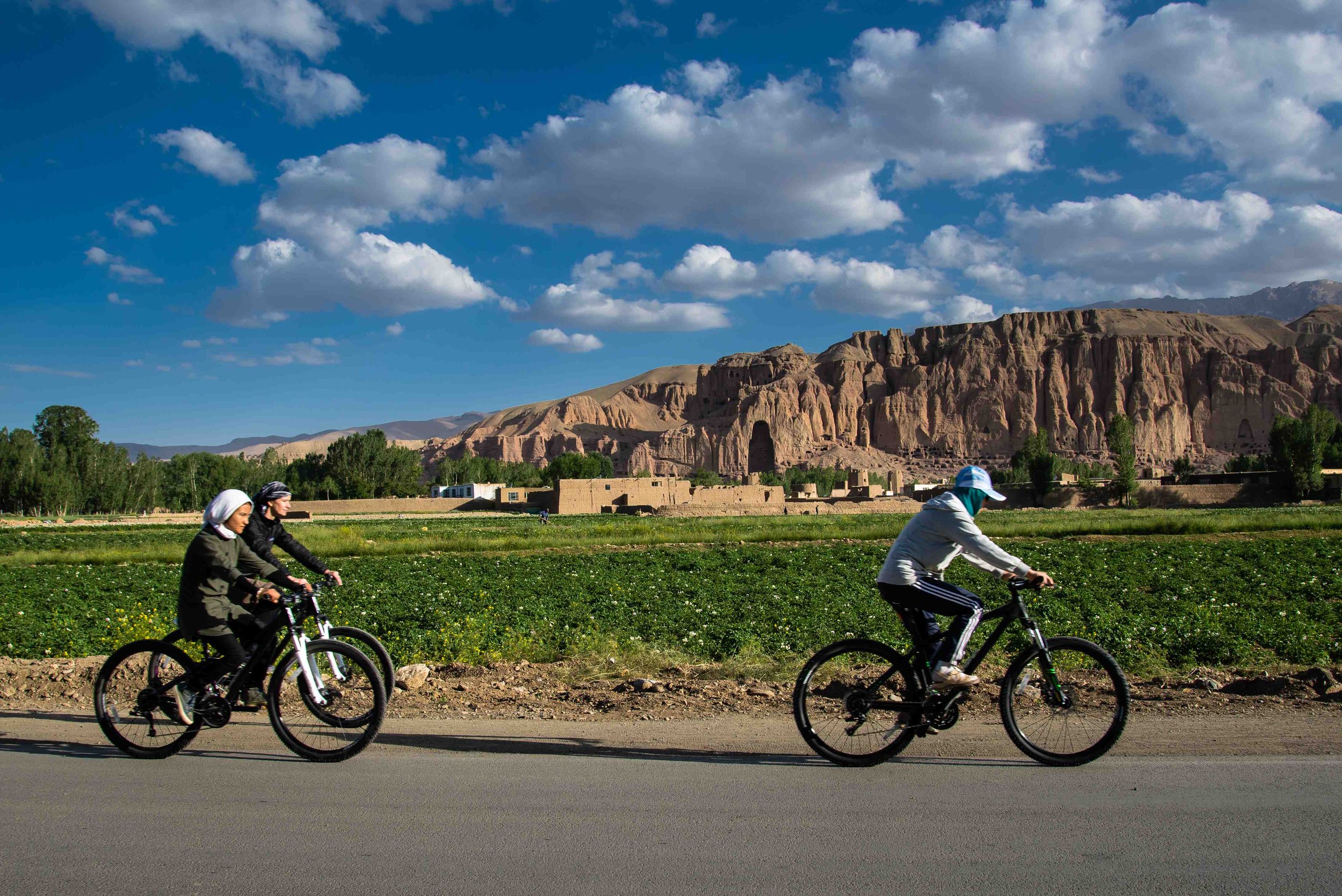
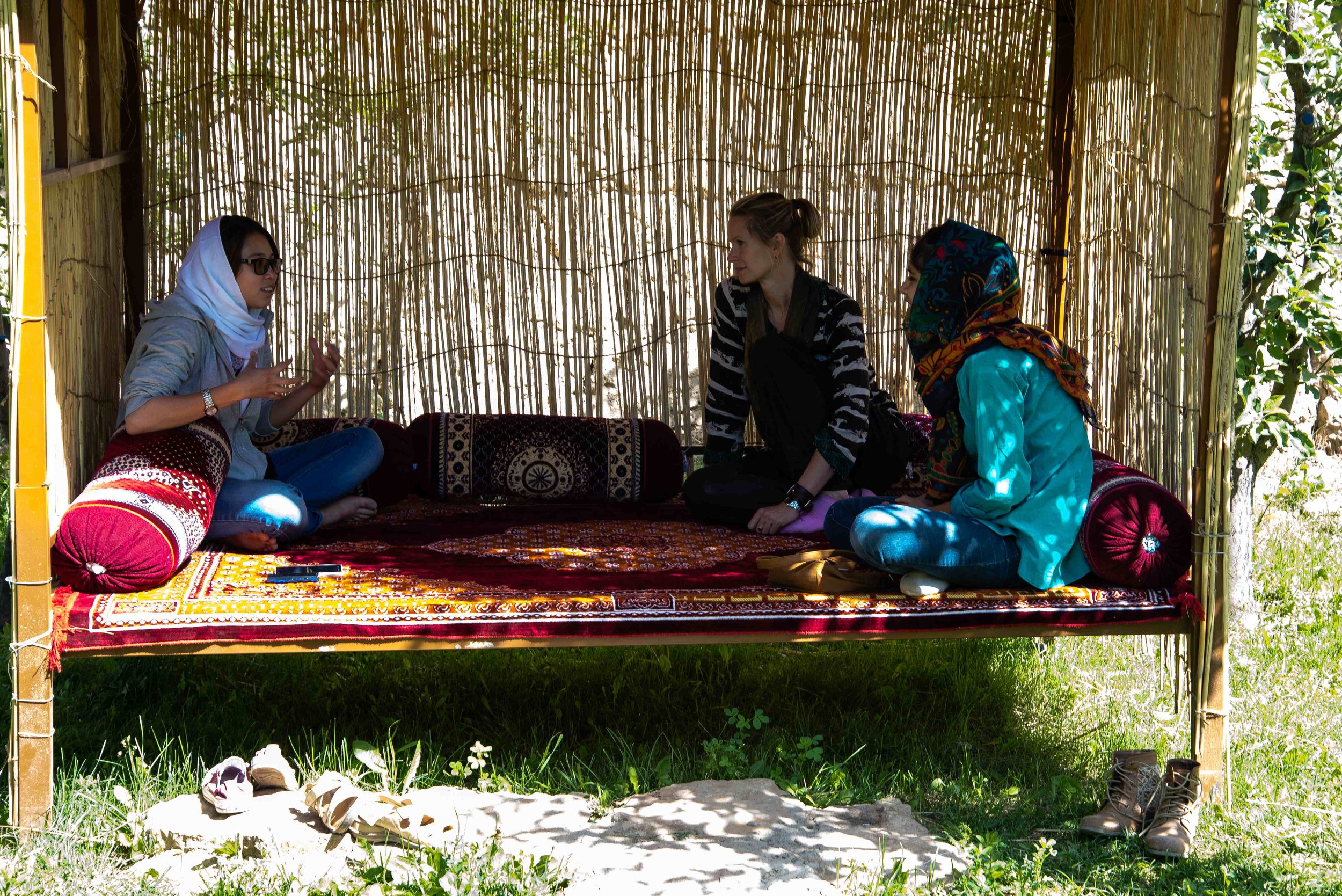
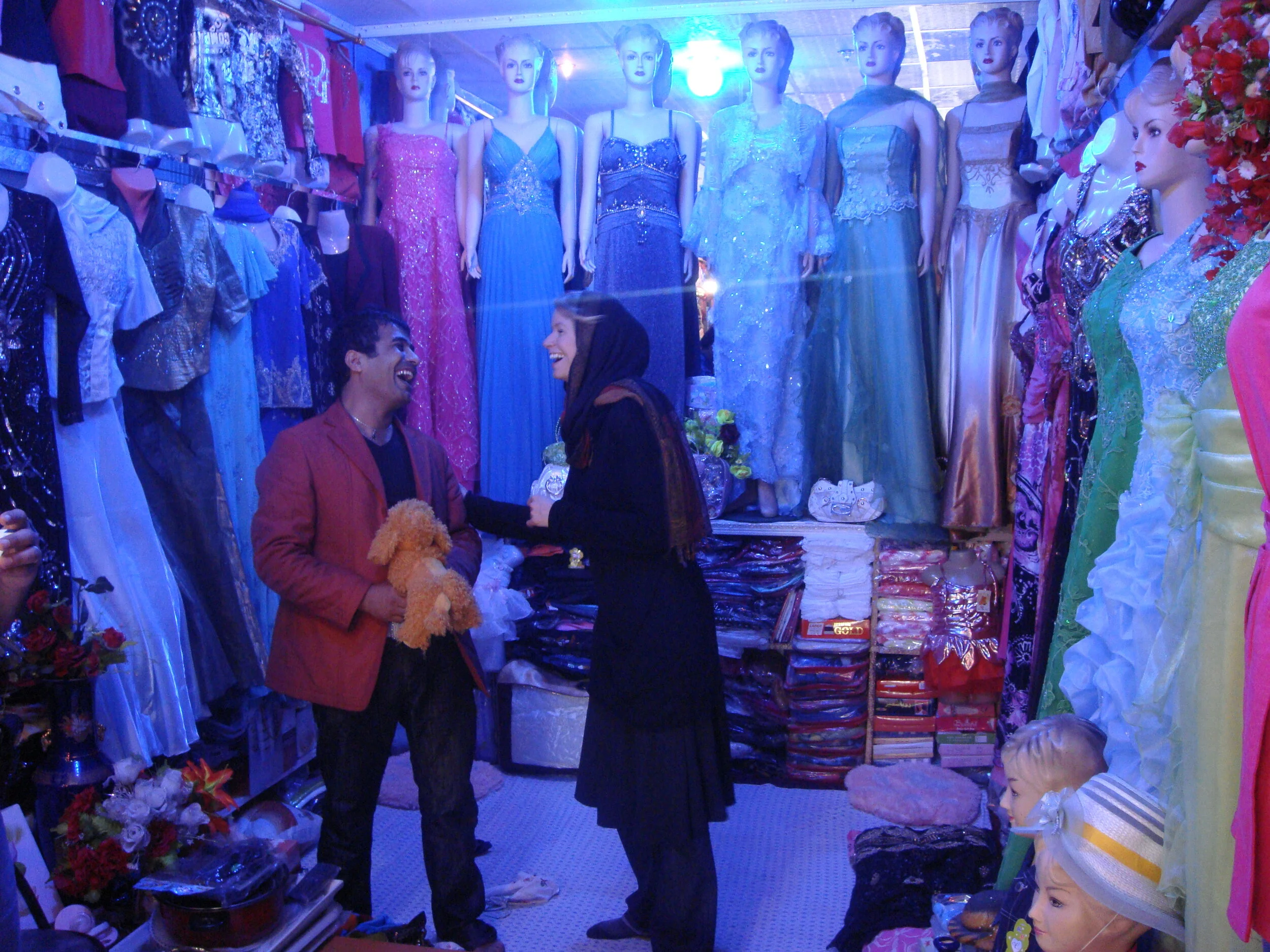
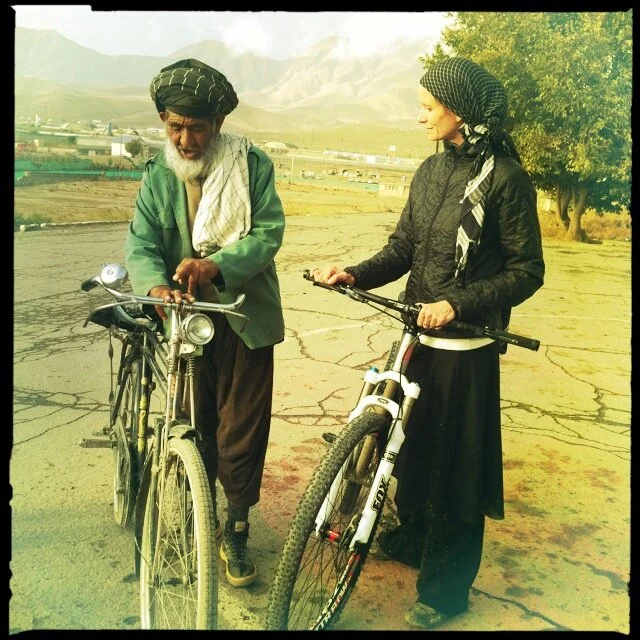
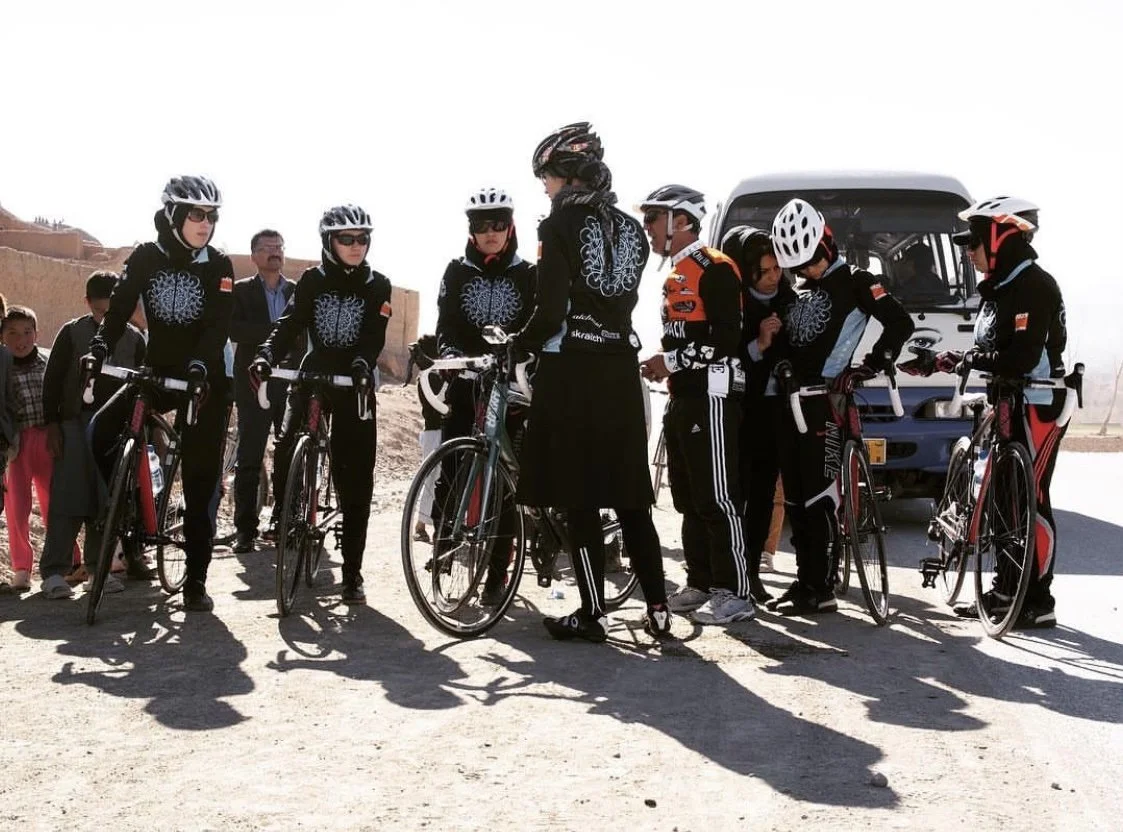
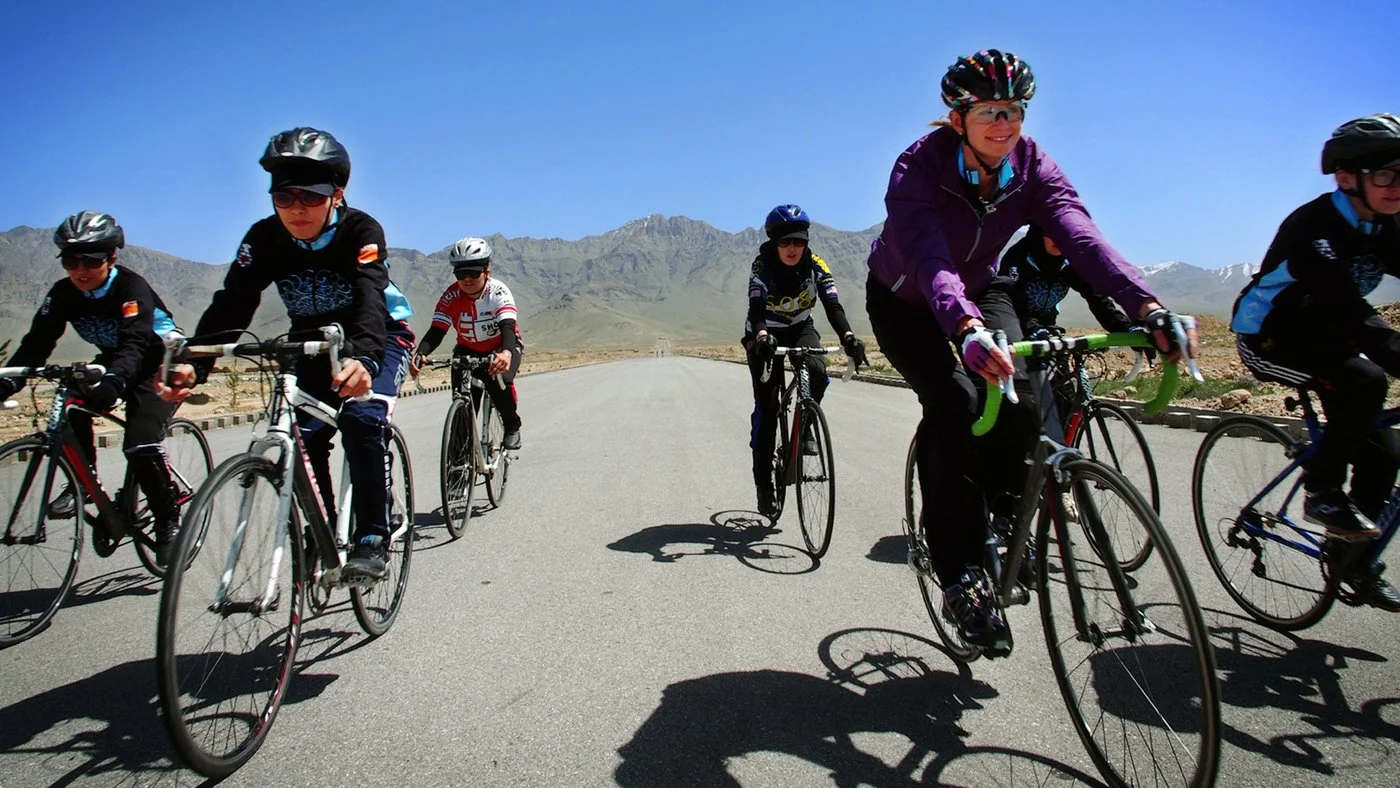
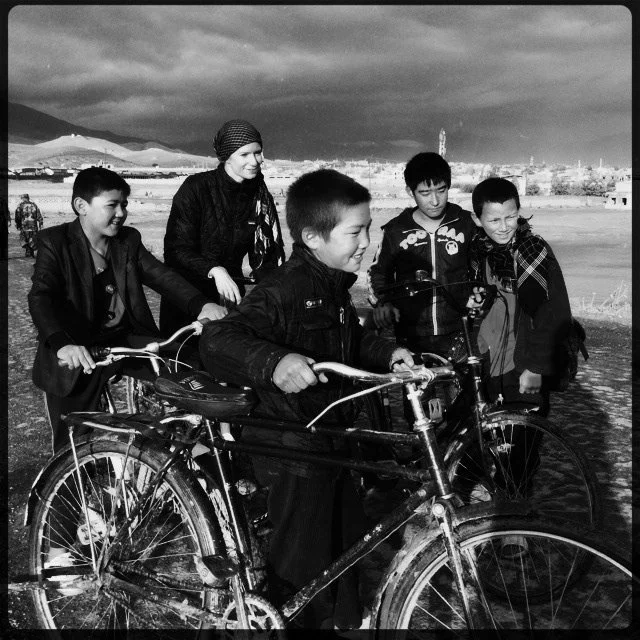
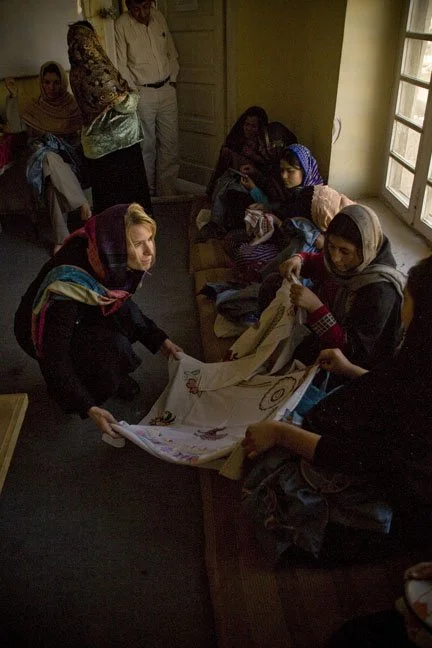
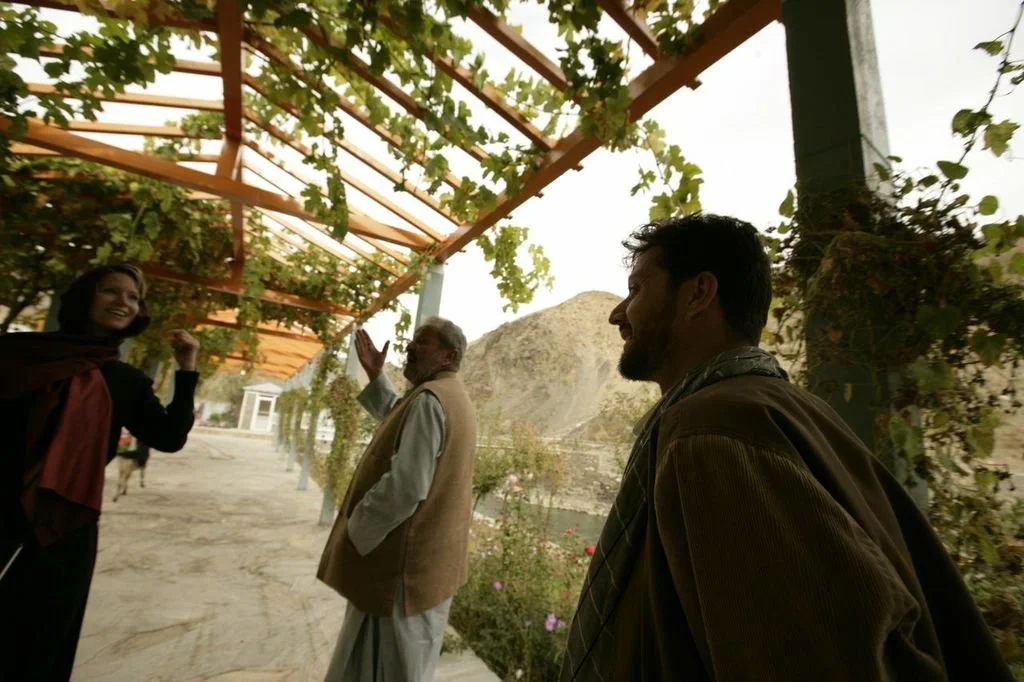
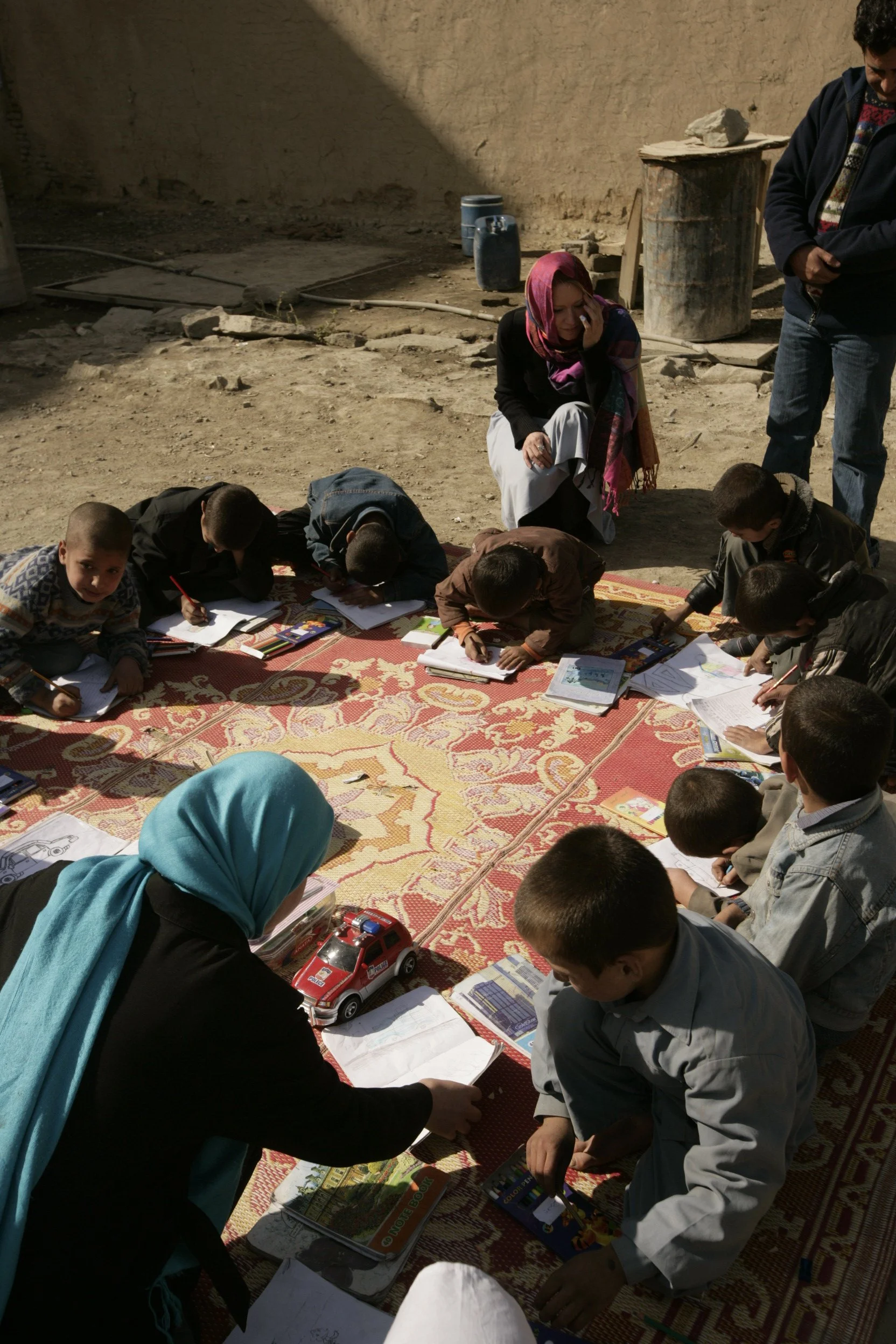
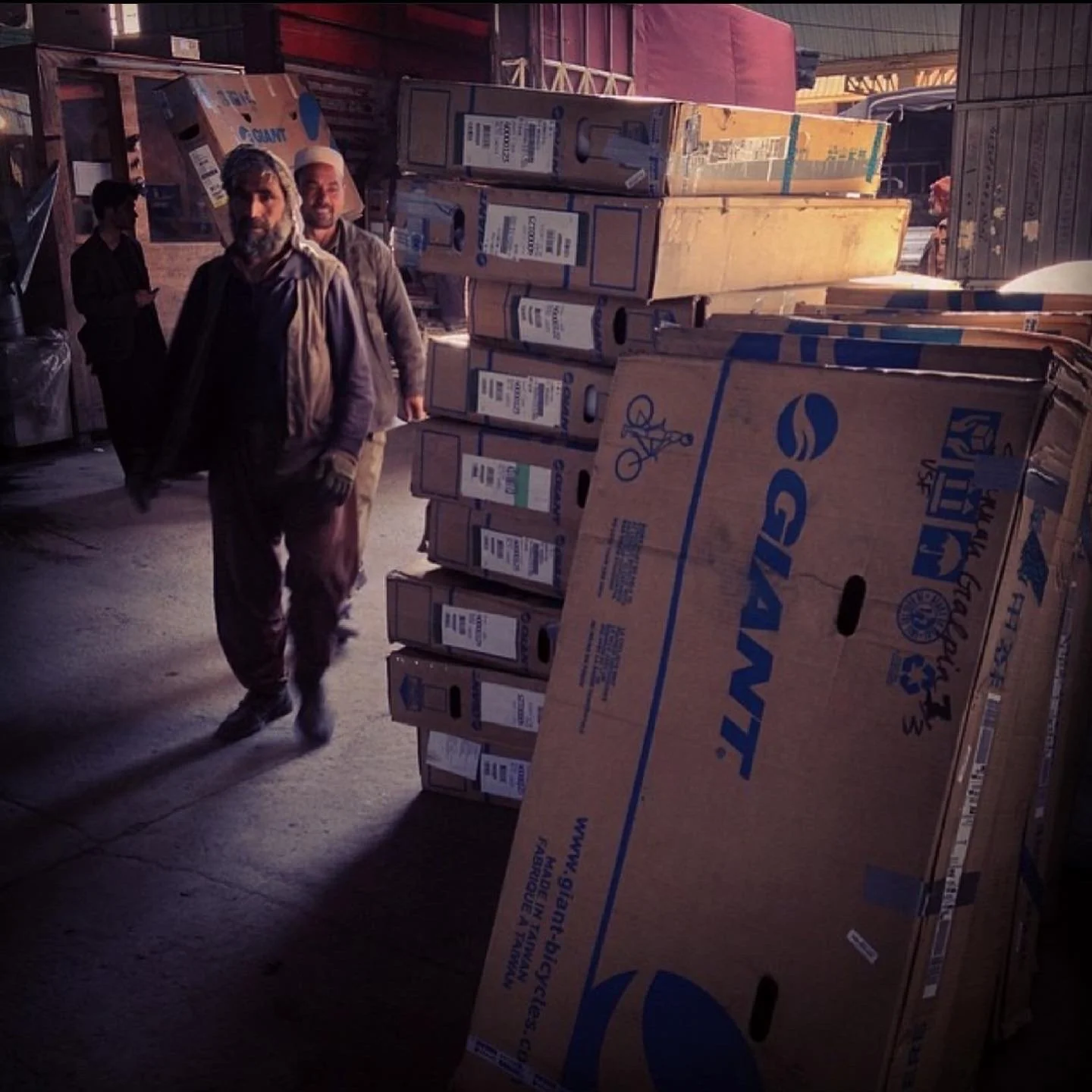
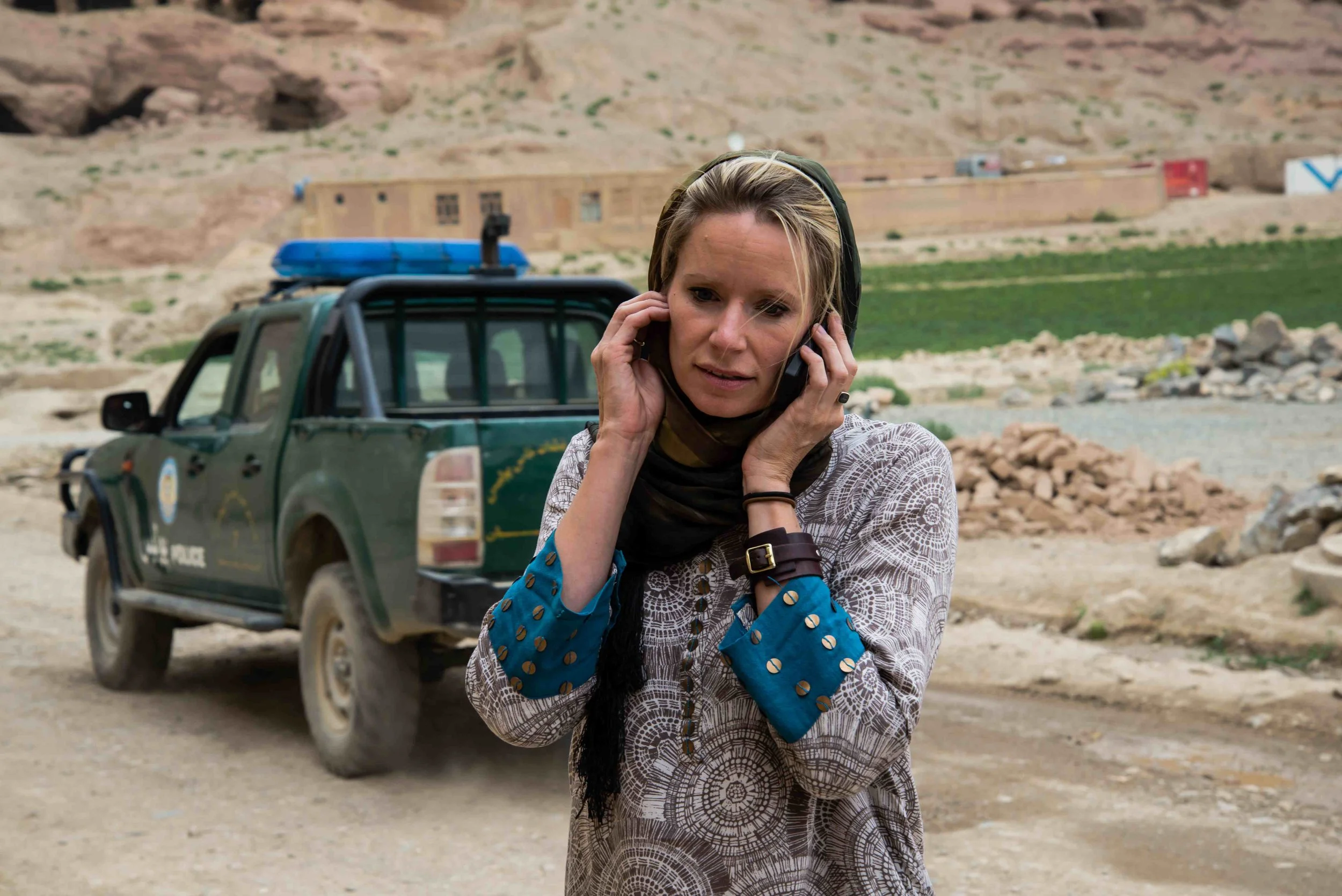
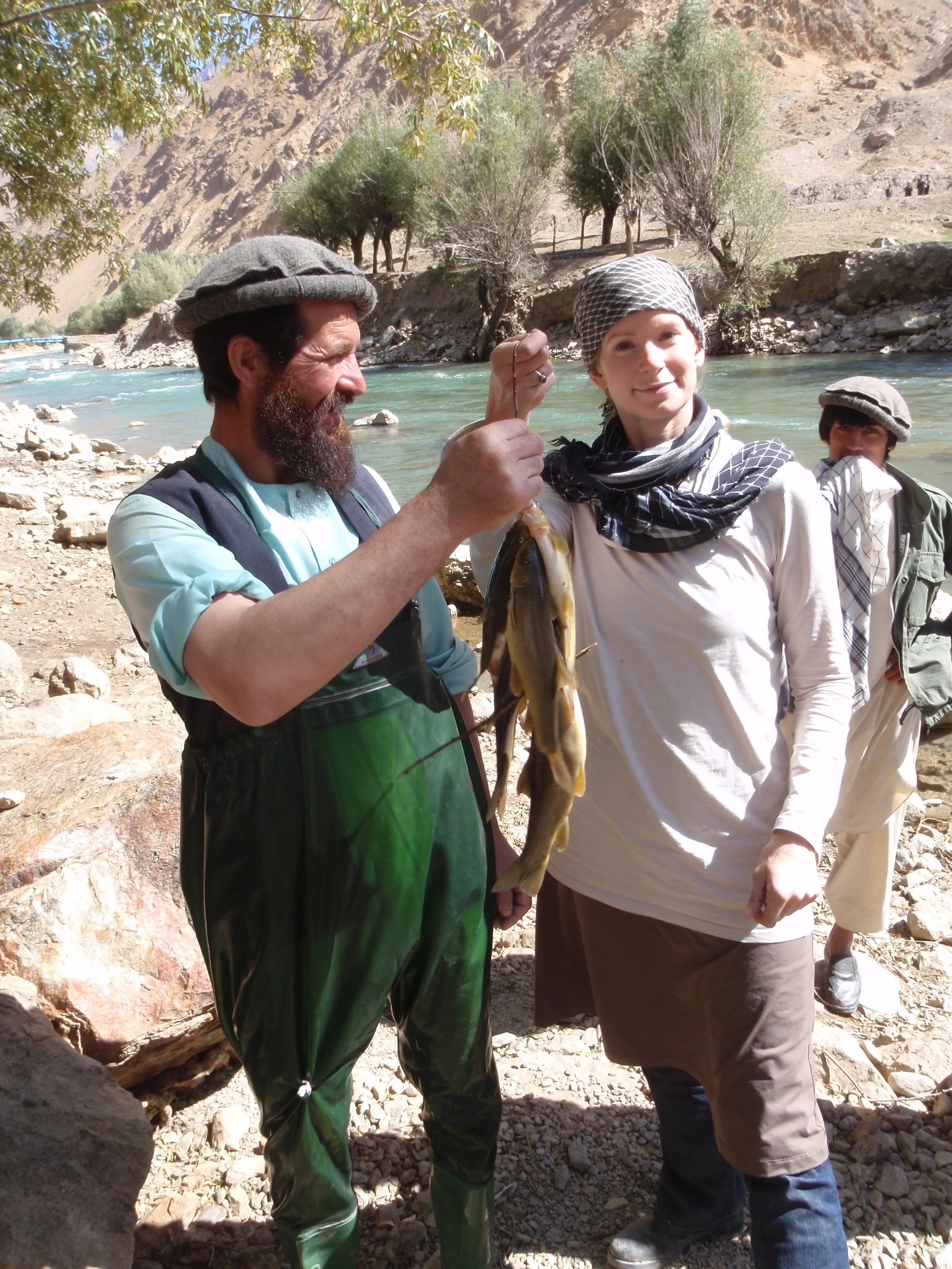

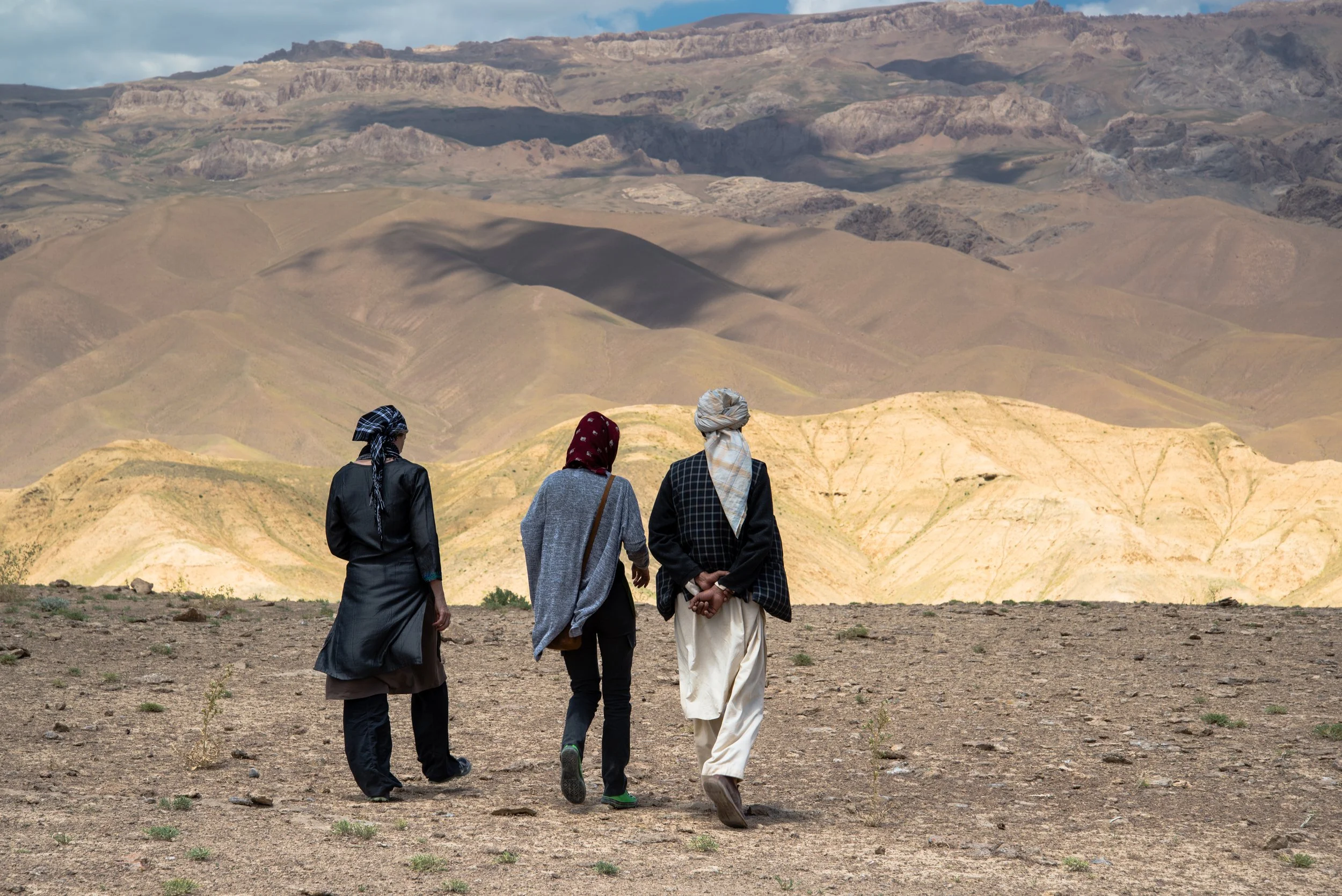
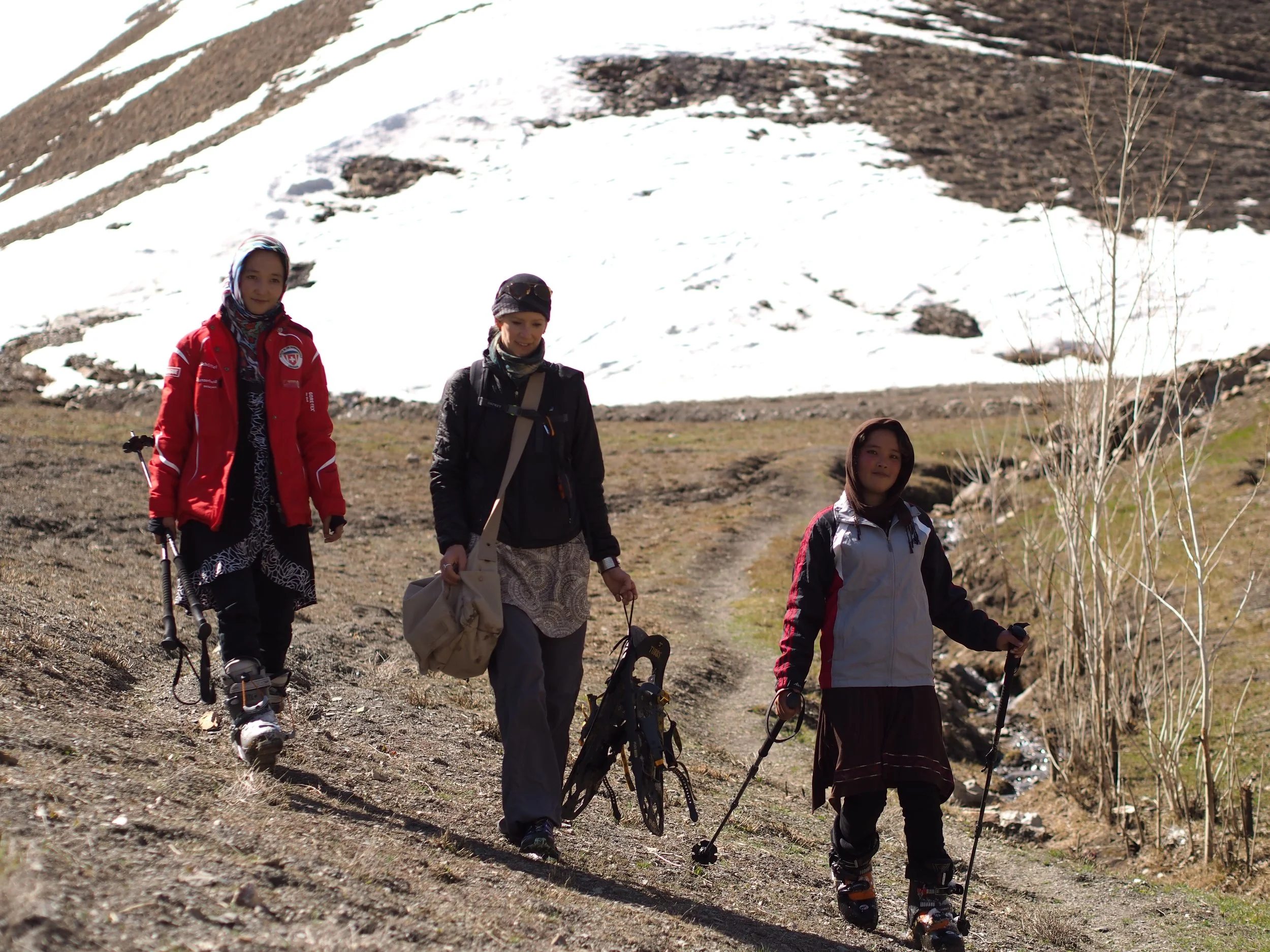
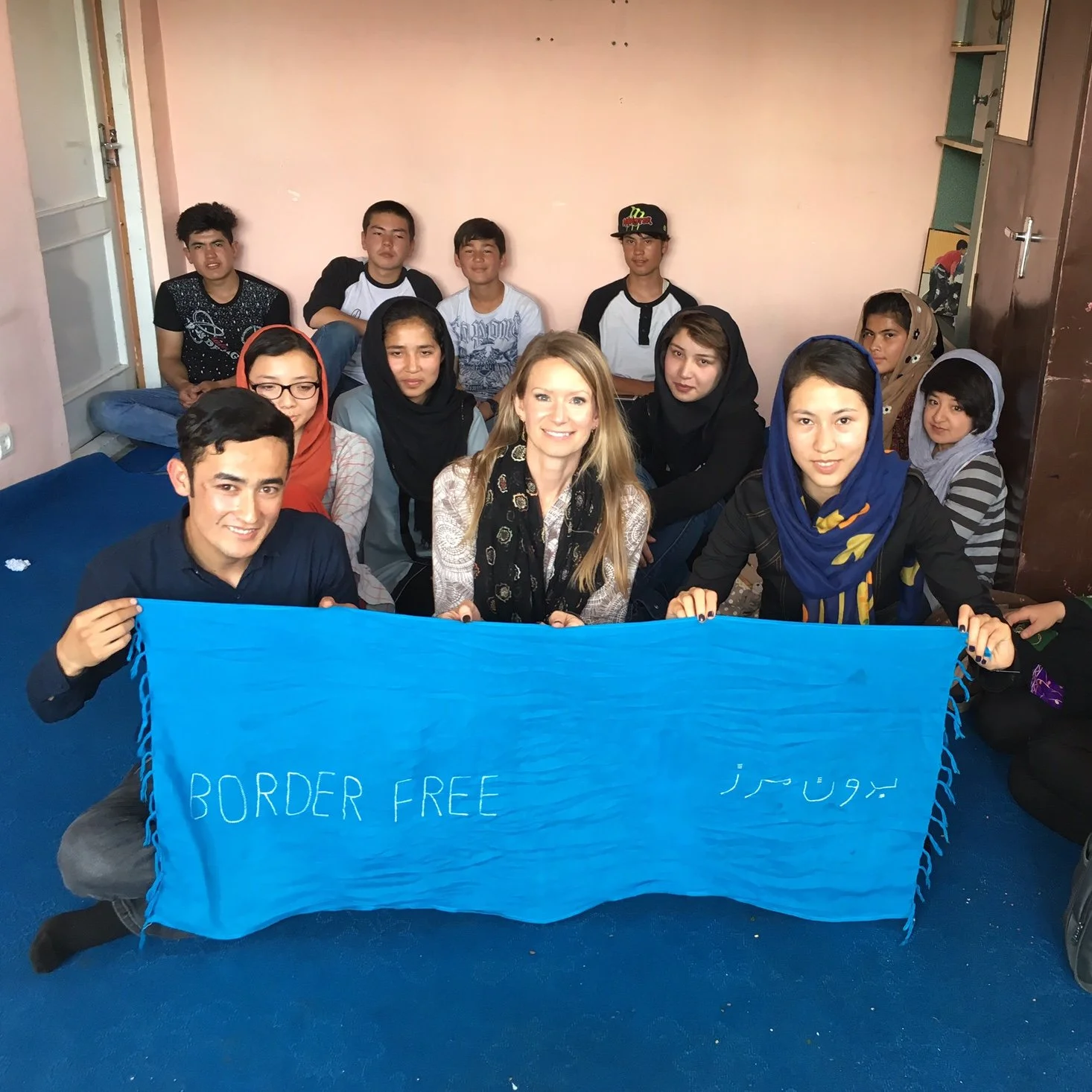
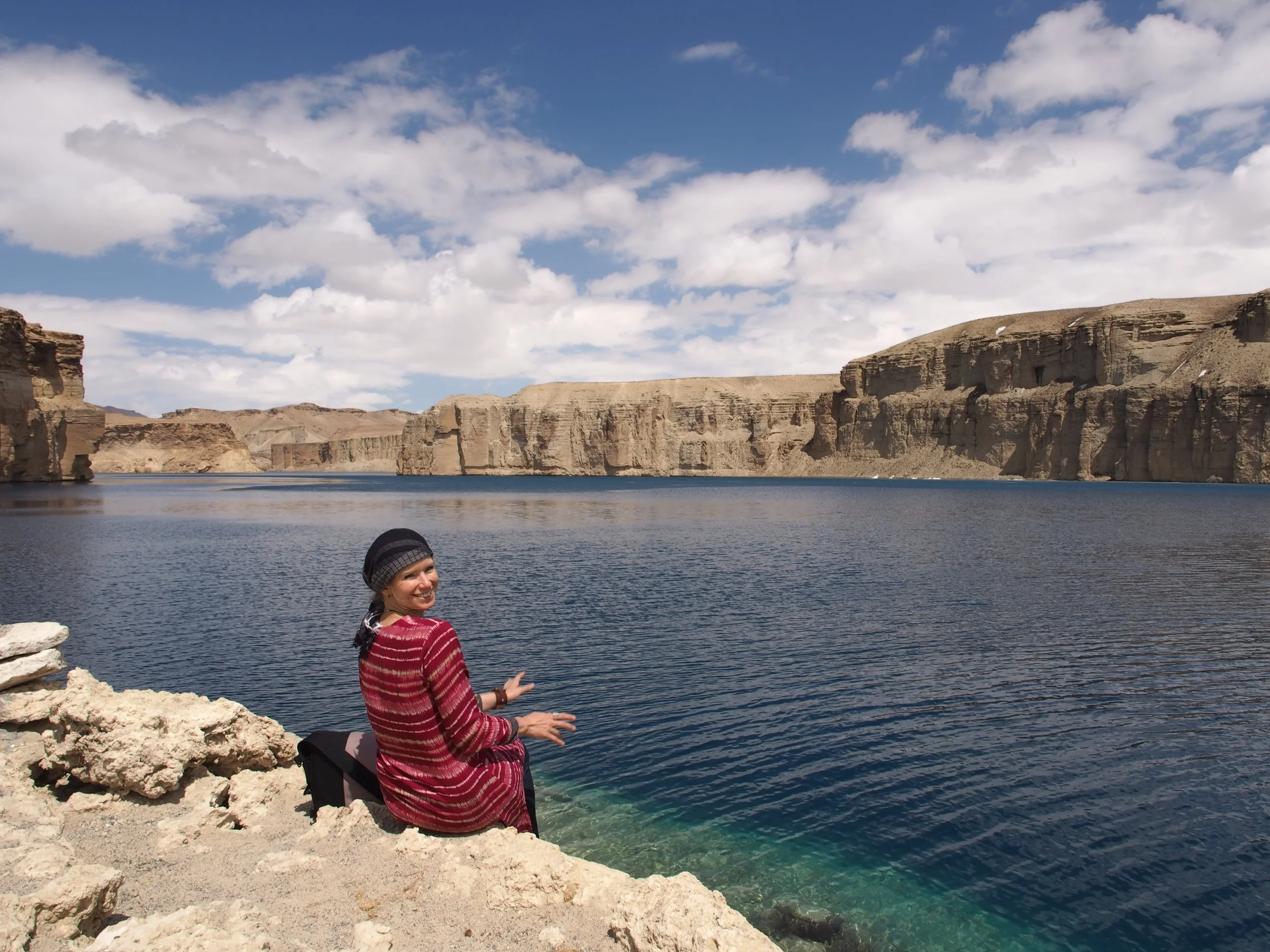
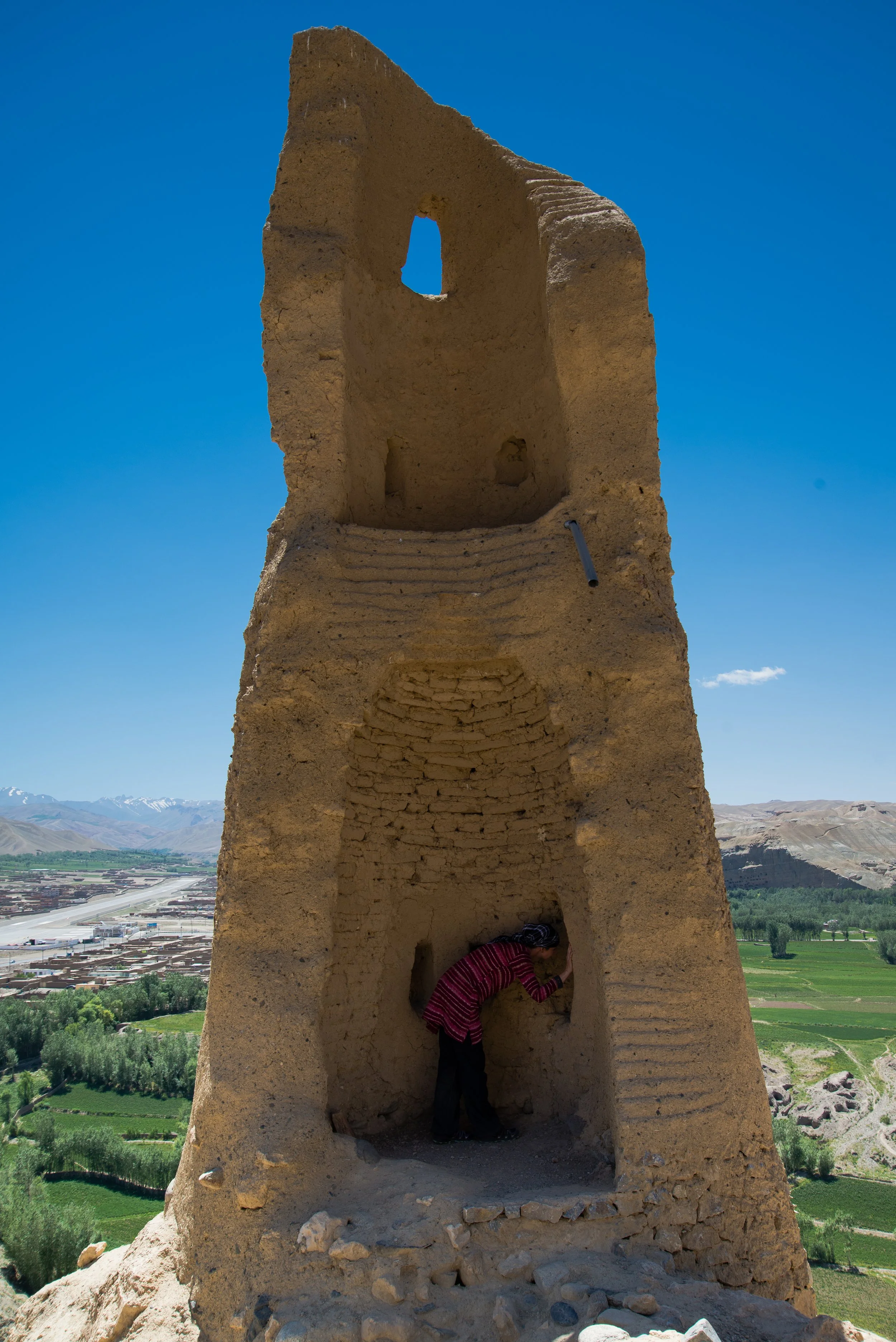
Your Custom Text Here
I founded the non-profit, Mountain2Mountain, in 2006 to focus on women's rights projects in Afghanistan. I spent a decade working in Afghanistan and have crisscrossed the country by motorcycle, bicycle, car, helicopter, plane, skis, and hiking on my own two feet. I have experienced Afghanistan through its landscape and its people who shared their stories, homes, food, and dreams with me.
My initial projects ranged from inside women's prisons, Kabul’s women's heroin rehab center, girls' and boys' education in remote mountain villages, and the deaf community in Kabul building a permanent home with ANAD thanks to a land donation from President Karzai. My passion was with the emerging youth culture: artists, athletes, activists.
I collaborated directly with Afghans. One of my first projects was with the newly established Afghan photojournalism center, AINA, to develop a pop-up traveling street art installation, Streets of Afghanistan. I supported creatives in Kabul to support the first graffiti workshop for Afghan artists with Combat Communications. I sought out the young storytellers and activists.
My first visit to Afghanistan focused on investigating gender violence and women's rights, as well as the role of international development. I was bolstered by the desire to understand the truth of what was happening to women in a country that my country had been engaged in arming and funding wars within for forty years. I wanted to meet Afghans, explore Afghanistan, and investigate alternatives to traditional international aid models. What I uncovered was a horrifying system of wilful corruption and complicity by international aid organizations laundering money back into Western pockets.
Underlying my work was the taboo of cycling. In 2009, I became the first woman to mountain bike in Afghanistan, and I continued to use cycling as a tool to investigate the gender barrier across the country for nearly a decade. The barrier cracked open sooner than I anticipated, and I began to train and coach the first generation of women cyclists in 2013. Alongside my projects, I wrote books and brought an all-woman film crew to Afghanistan to produce a film, Afghan Cycles, that spent the next five years documenting the National Cycling Team and the first women-founded, women-led cycling team in Bamyan.
In one decade, a thriving cycling scene for women and girls developed across multiple provinces and disciplines. But that was violently erased on August 15, 2021, when Kabul fell to the Taliban. I worked to evacuate the original and current Afghan cyclists and their family members. Over 150 Afghan women and family members were evacuated and resettled safely.
In just a few short months, Afghanistan became the most repressive country for women and girls in the world. It is now the only country to ban sports, secondary education, and access to nature and the outdoors, as evidenced by the restrictions on walking in public gardens and entering national parks. The most recent ban forbade women from speaking too loudly in public. Afghan women are engaged in the diaspora to fight back with the help of the UK Gender Apartheid Inquiry and the UN.
I am still fighting to support Afghan women and amplify their stories.
Most recently, with the help of lawyers at Hogan Lovells, I submitted evidence with Afghan women athletes to two essential inquiries: the UK Parliament's gender apartheid inquiry and the UN's special report on gender abuse in women's sport. Thanks to the lawyers at Hogan Lovells, I was also able to successfully bring an abuse case against the Afghan Cycling Federation President at the UCI Ethics Commission on behalf of the Afghan cyclists who were being harassed and threatened during the evacuation. He was found guilty in July 2024. The athletes, however, have never seen any reparations or support from the ACF or UCI.
I founded the non-profit, Mountain2Mountain, in 2006 to focus on women's rights projects in Afghanistan. I spent a decade working in Afghanistan and have crisscrossed the country by motorcycle, bicycle, car, helicopter, plane, skis, and hiking on my own two feet. I have experienced Afghanistan through its landscape and its people who shared their stories, homes, food, and dreams with me.
My initial projects ranged from inside women's prisons, Kabul’s women's heroin rehab center, girls' and boys' education in remote mountain villages, and the deaf community in Kabul building a permanent home with ANAD thanks to a land donation from President Karzai. My passion was with the emerging youth culture: artists, athletes, activists.
I collaborated directly with Afghans. One of my first projects was with the newly established Afghan photojournalism center, AINA, to develop a pop-up traveling street art installation, Streets of Afghanistan. I supported creatives in Kabul to support the first graffiti workshop for Afghan artists with Combat Communications. I sought out the young storytellers and activists.
My first visit to Afghanistan focused on investigating gender violence and women's rights, as well as the role of international development. I was bolstered by the desire to understand the truth of what was happening to women in a country that my country had been engaged in arming and funding wars within for forty years. I wanted to meet Afghans, explore Afghanistan, and investigate alternatives to traditional international aid models. What I uncovered was a horrifying system of wilful corruption and complicity by international aid organizations laundering money back into Western pockets.
Underlying my work was the taboo of cycling. In 2009, I became the first woman to mountain bike in Afghanistan, and I continued to use cycling as a tool to investigate the gender barrier across the country for nearly a decade. The barrier cracked open sooner than I anticipated, and I began to train and coach the first generation of women cyclists in 2013. Alongside my projects, I wrote books and brought an all-woman film crew to Afghanistan to produce a film, Afghan Cycles, that spent the next five years documenting the National Cycling Team and the first women-founded, women-led cycling team in Bamyan.
In one decade, a thriving cycling scene for women and girls developed across multiple provinces and disciplines. But that was violently erased on August 15, 2021, when Kabul fell to the Taliban. I worked to evacuate the original and current Afghan cyclists and their family members. Over 150 Afghan women and family members were evacuated and resettled safely.
In just a few short months, Afghanistan became the most repressive country for women and girls in the world. It is now the only country to ban sports, secondary education, and access to nature and the outdoors, as evidenced by the restrictions on walking in public gardens and entering national parks. The most recent ban forbade women from speaking too loudly in public. Afghan women are engaged in the diaspora to fight back with the help of the UK Gender Apartheid Inquiry and the UN.
I am still fighting to support Afghan women and amplify their stories.
Most recently, with the help of lawyers at Hogan Lovells, I submitted evidence with Afghan women athletes to two essential inquiries: the UK Parliament's gender apartheid inquiry and the UN's special report on gender abuse in women's sport. Thanks to the lawyers at Hogan Lovells, I was also able to successfully bring an abuse case against the Afghan Cycling Federation President at the UCI Ethics Commission on behalf of the Afghan cyclists who were being harassed and threatened during the evacuation. He was found guilty in July 2024. The athletes, however, have never seen any reparations or support from the ACF or UCI.